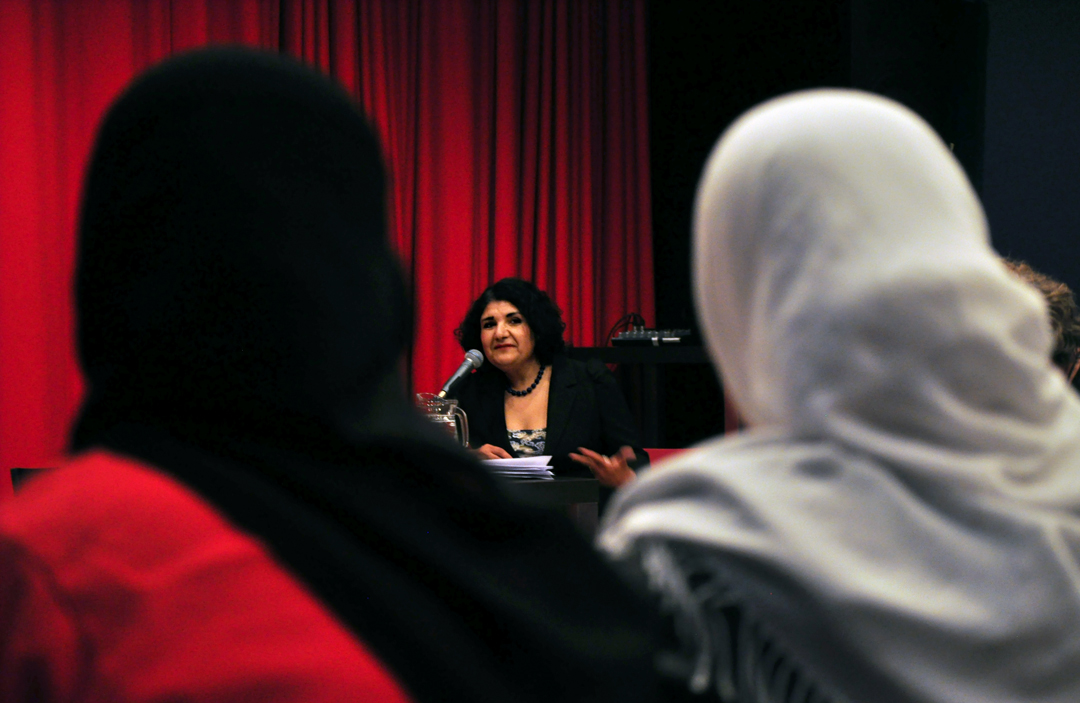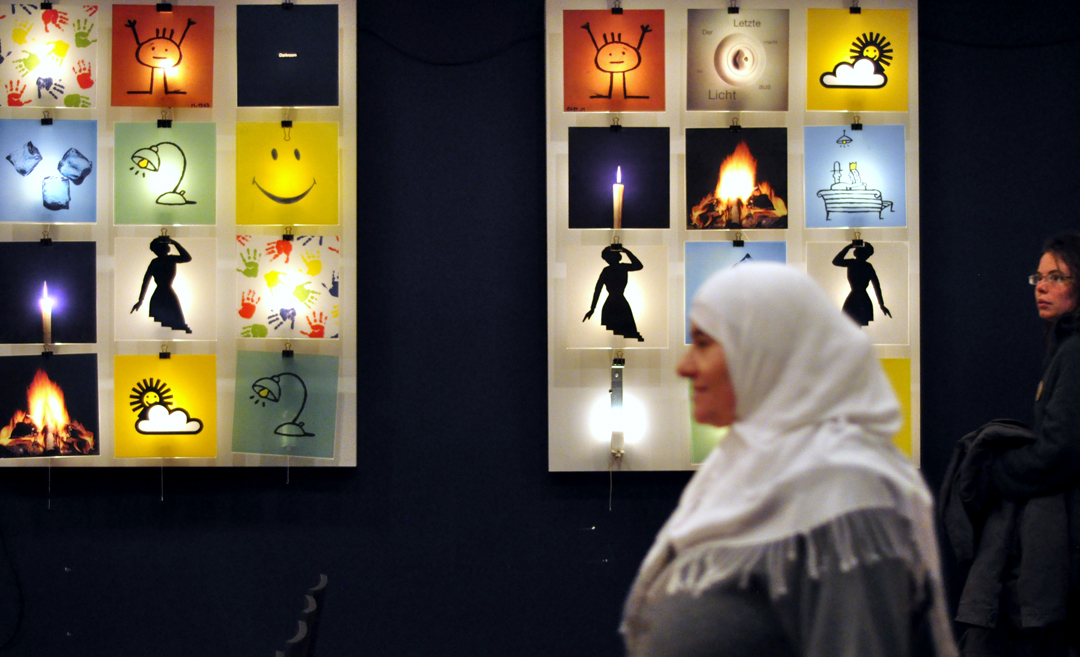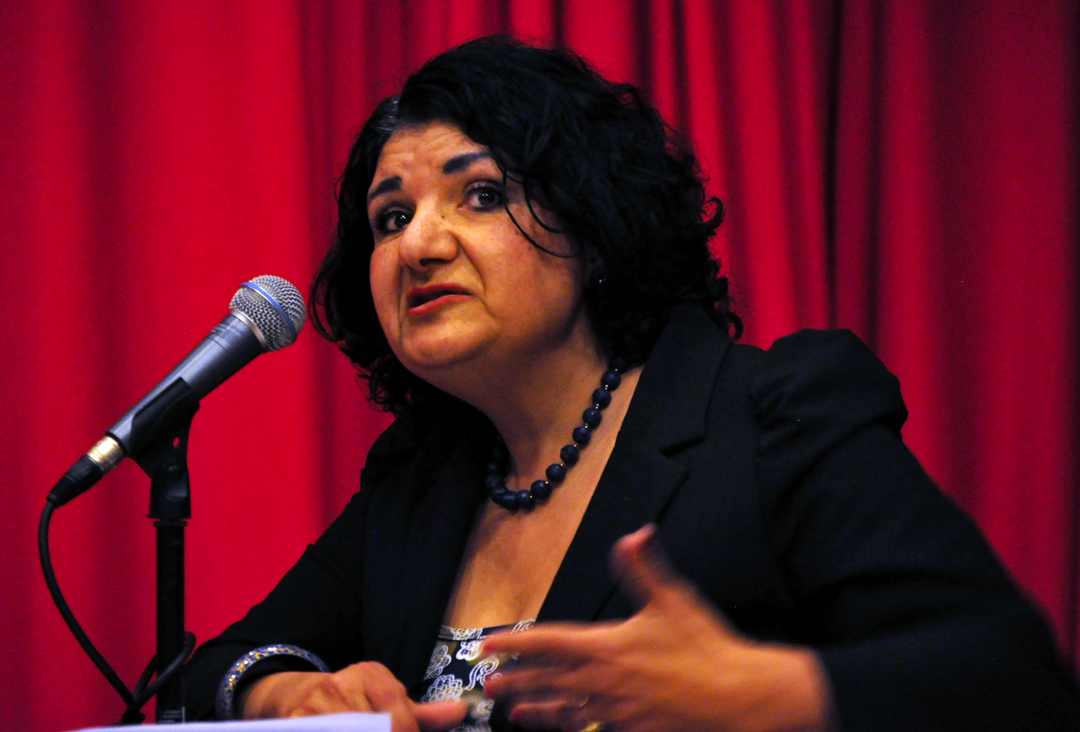On Wednesday evening, still feeling a little jet lagged, I covered another assignment for Amnesty International's regional office - a conversation with Nahed Selim, an Egyptian writer who has been living in the Netherlands for more than 30 years and is considered part of the third wave of feminists. She spoke very candidly and considerately about the impact of the Arab Spring, and her predictions for the future of the region, especially within Egypt. Below are some photos that I took, as well as an English translation of my article, the Dutch version of which can be found here: www.amnesty.nl
In the lead up to International Women's Day 2012, Nahed Selim, an Egyptian writer who has lived in the Netherlands since 1979, participated in a conversation at De Harmonie in Leeuwarden about her experiences as a woman in Egypt and her instincts about the outcome and the future of the Arab Spring
There were around 50 people present, a mix of men and women, native Dutch people and people with international backgrounds: blondes and hijabs sitting beside one another. Selim said she is simultaneously optimistic and pessimistic about the future for all Egyptians. "I personally am convinced that men and women should have the same rights, and in society they must also have the same opportunities," said Selim, however uncertain if this will occur in Egypt.
After the revolution, according to Selim, people were "too optimistic about their chances to be a part of the new power." She said that women played a large role during the revolution, especially through social media. In reality, the history of revolutions in Middle Eastern countries during the 20th century demonstrates that without a true change to the government, not just who leads it, women's rights have not been permanently changed.
A clear example from the aftermath of the Arab Spring is that there are now eight women in the Egyptian parliament - eight in a group of 500 members, less than two percent (in spite of a new law that requires at least 64 women to be members of parliament). A sad insight into the tenuous position of women after the revolution is the proposal by one of the Islamic parties to reduce joblessness: "They have said that a solution should consist of women working less outside the home, so that there will be more room for men to work."
"I think it is terrible, when a woman has completed her degree as an engineer... but people quickly say to her, 'No ma'am, go home, because we want to keep this position open for a male engineer.'"
Through this conversation, and because it is named International Women's Day, it is completely clear that this day of awareness is unfortunately not irrelevant for many women in the world (in contrast with the trendy opinion this week to question whether International Women's day is still needed or relevant within the Netherlands). Women's Day is still crucial for women in countries where their rights could still be taken away, and as long as there is injustice against women anywhere in the world, it means that injustice against women is possible everywhere.
There were around 50 people present, a mix of men and women, native Dutch people and people with international backgrounds: blondes and hijabs sitting beside one another. Selim said she is simultaneously optimistic and pessimistic about the future for all Egyptians. "I personally am convinced that men and women should have the same rights, and in society they must also have the same opportunities," said Selim, however uncertain if this will occur in Egypt.
After the revolution, according to Selim, people were "too optimistic about their chances to be a part of the new power." She said that women played a large role during the revolution, especially through social media. In reality, the history of revolutions in Middle Eastern countries during the 20th century demonstrates that without a true change to the government, not just who leads it, women's rights have not been permanently changed.
A clear example from the aftermath of the Arab Spring is that there are now eight women in the Egyptian parliament - eight in a group of 500 members, less than two percent (in spite of a new law that requires at least 64 women to be members of parliament). A sad insight into the tenuous position of women after the revolution is the proposal by one of the Islamic parties to reduce joblessness: "They have said that a solution should consist of women working less outside the home, so that there will be more room for men to work."
"I think it is terrible, when a woman has completed her degree as an engineer... but people quickly say to her, 'No ma'am, go home, because we want to keep this position open for a male engineer.'"
Through this conversation, and because it is named International Women's Day, it is completely clear that this day of awareness is unfortunately not irrelevant for many women in the world (in contrast with the trendy opinion this week to question whether International Women's day is still needed or relevant within the Netherlands). Women's Day is still crucial for women in countries where their rights could still be taken away, and as long as there is injustice against women anywhere in the world, it means that injustice against women is possible everywhere.



